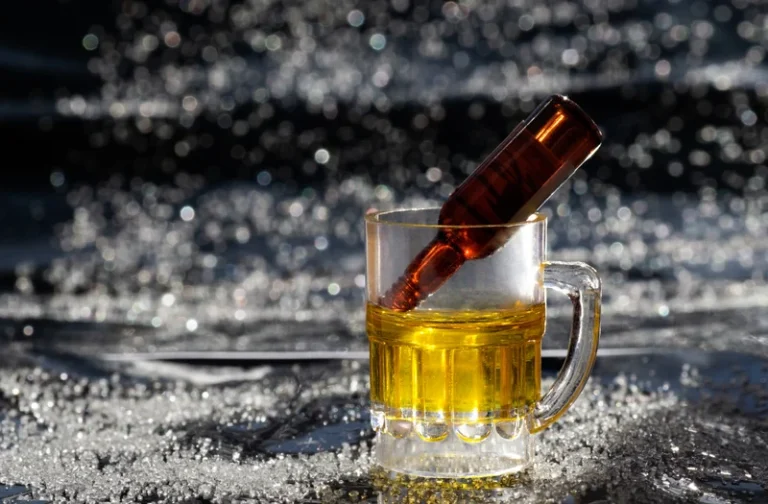
When consumed, it can lead to impaired judgment and decision-making, increased risk-taking behaviors, and shifts in power dynamics. From communication to trust, explore the impact of alcohol on your love life. If your partner continues to deny their drinking and shows little interest in pursuing treatment, it may be worth taking a step back. You might, for instance, revisit some of your concerns about their alcohol use, including how their drinking affects you, any children or other family members, and your relationship as a whole.
How Do I Find Treatment for Alcoholism and Relationships Issues?
This disconnect https://ecosoberhouse.com/article/13-common-myths-about-addiction-and-recovery/ between most of our theories and the inherent, interpersonal nature of IPA prevents research from fully examining the dynamic interplay between both partners in the development of discrete episodes of IPA. Alcohol use is a broad term purposely employed throughout this review to subsume a wide range of alcohol use behaviors and consequences that are most commonly used in this literature. Indeed, particular attention should be paid to the alcohol use constructs used within and across studies, because the operational definition of these constructs play a strong role in the interpretation of their effects on marital functioning and in the conclusions that are drawn from this review. For this reason, a brief overview of the four most common conceptual and operational definitions of alcohol use behaviors used in this literature will be provided below. It should be noted that the majority of these studies assessed the effects of husbands’ alcohol use and abuse on wives’ marital functioning outcomes.
What Are the Warning Signs That Alcohol Misuse Is Interfering With Relationships?
This shift in language reflects current awareness of AUD as a mental health condition, not a personal choice. Despite the advantages of using the adaptive and maladaptive hypotheses as heuristics for guiding past research (and as an interesting storyline in this review), most researchers and clinicians would agree that they grossly oversimplify what are considered highly complex phenomena. It is no surprise, then, that comprehensive theoretical models of risk that attempt to explain all of the possible mechanisms by which alcohol use contributes to marital success or failure are elusive. Alcohol can have wide-ranging negative effects on personal relationships, impacting emotional, financial, and social aspects of life. Alcohol use can deeply affect relationships, leading to communication issues, loss of trust, and neglecting responsibilities. While you might believe that your partner is more important than any substance, addiction can make alcohol seem like the priority.
- Alcohol has been reported to account for 16% of adult drinkers’ total energy intake in the United States 68, with men consuming about three times the amount consumed by women 68.
- Indeed, several studies in this review found that alcohol use and abuse was related to dissolution “potential” in married couples (Halford & Osgarby, 1993; Katz et al., 1995; O’Farrell & Birchler, 1987; Perodeau & Kohn, 1989) as measured by the MSI.
- However, it’s important to make sure you’re getting the support you need as well.
Don’t Enable Their Behavior
“A therapist can help you navigate your thoughts and feelings about the relationship and explore your options for moving forward,” says Metcalf. A therapist can offer assistance with devising a self-care plan and coach you on alcohol and relationships setting boundaries that align with your needs. But they can also help you identify any key signs suggesting it’s time to consider leaving the relationship, if only temporarily. Still, you can play an important role in encouraging them to seek support with care and compassion.

Additionally, alcohol-induced memory impairment can further complicate trust issues. Individuals under the influence of alcohol may have impaired recollection of events or conversations, leading to misunderstandings and mistrust between partners. These lapses in memory can leave one or both partners feeling uncertain about the accuracy and reliability of their partner’s words or actions. Alcohol consumption can increase the likelihood of infidelity within a relationship.
- Once organized, these factors present the opportunity to examine their main effects and, more importantly, their interactions with other relevant risk factors present for individuals of interest at specific points in time.
- Sample sizes in the marital interaction literature range from 8 to 135, with the mean sample size of 73, making it difficult to detect main effects, let alone two- and three-way interactions.
- Alcohol consumption can also contribute to trust issues within relationships.
- Laurie Chassin, Manuel Barrera, Ken Leonard, Susan Somerville, Nancy Russo, Larry Dumka, Frank Lotrich, Tad Gorske, Christopher Martin, Mary Amanda Dew, and Joshua Miller for their helpful guidance and feedback.
- Other investigations have found that participant and partner alcohol use increase positive interactions among couples.
If you or someone you care about are struggling with alcohol use disorder (AUD), learning about the effects of alcohol on relationships and the types of alcohol addiction treatment available can help you make an informed decision about your care. For example, some researchers distinguish between “steady” and “binge” drinkers (Epstein, Kahler, McCrady, Lewis, & Lewis, 1995). Steady drinkers are more likely to drink a smaller volume of alcohol and do so more frequently, whereas binge drinkers are likely to consume heavy amounts of alcohol less frequently.
Alcohol and Domestic Violence

Even if you believe your partner is more important than any substance, your actions will likely prove otherwise if you have alcohol use disorder. Heavy drinking affects the mind and body, and the one struggling is often the last to recognize the damage’s extent. They may lie to their partner or family about where they are, who they spend their time with and what they did during the day.
Product Reviews

Narrowing the reference period to the last 24-hr and increasing the frequency of responding reduce the risk of retrospective memory bias in reporting alcohol use and IPA. This method further allows from more precise sequencing of target behaviors that would not be possible using longitudinal methods (Cranford, Tennen, & Zucker, 2010). Two daily diary studies have recruited couples to assess the effects of participant and partner alcohol use on relationship functioning and IPV. Given the interdependent nature of dyadic behavior, one might reasonably wonder how relationship conflicts are impacted when one or both members of a couple becomes intoxicated? Overall, relatively few studies have utilized a dyadic approach to understanding alcohol-facilitated IPA. The authors indicated that intoxicated dyads exhibited more initial and sustained TAP aggression relative to sober dyads.
